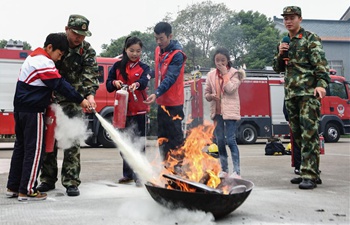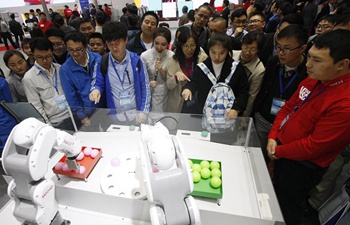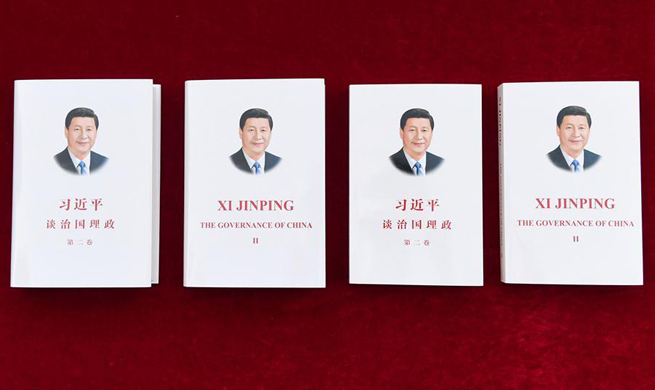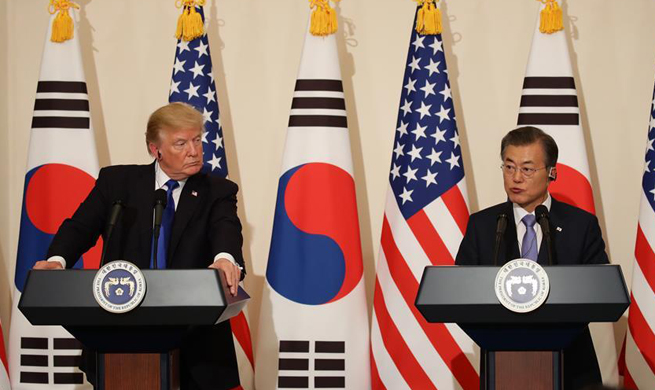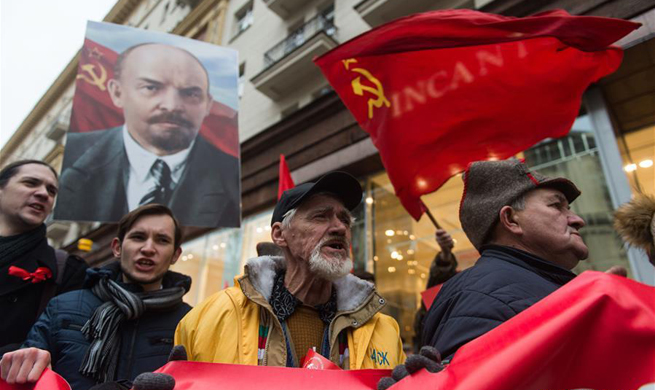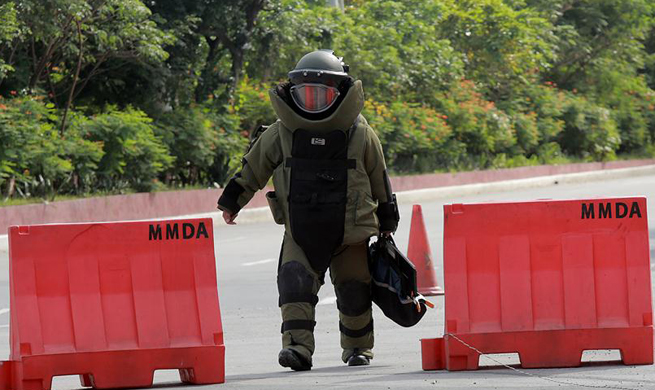by Li Ming, Wang Naishui, Yuan Yue
NEW YORK, Nov. 7 (Xinhua) -- As the United States is stepping up efforts to revive the country's old industrial states, the so-called Rust Belt, Chinese investment in the region has also entered a phase of rapid growth, creating thousands of manufacturing jobs.
BLUE-COLLAR WORKERS
Fifty-eight-year-old James Wilkerson has been working in the semitrailer business in the Midwestern U.S. state of Indiana for 36 years. Not only has he experienced the ups and downs of the industry, he also witnessed how investment from China breathed life into the local community.
Monon, the town where Wilkerson lives, saw its heyday in 1980s and 1990s, when the local trailer company HPA Monon hired as many as 400 workers, roughly one third of the town's population.
The company, along with many others in the rust-belt states, trimmed its production and went bankrupt around 2001 due to the economic slowdown, putting hundreds of local residents out of work.
"There was a time of idleness. Nothing happened here until the CIMC acquired the assets," Wilkerson told Xinhua, referring to China International Marine Containers (CIMC), a Shenzhen-based transportation equipment company, which came to Monon in 2003 and built a wholly owned subsidiary called Vanguard National Trailer Corporation.
"We had 35 or 40 people at first. And then we slowly ramped up and now we have almost 500," said Wilkerson, who started as a superintendent of the factory's production line and is now the director of manufacturing.
In 10 years, Vanguard became Monon's largest employer, contributing some 80 percent of the local gross domestic product.
"Vanguard is so important to the health of the town," Randy Mitchell, president of White County Economic Development, said. "Probably every family has a member that has worked either at Vanguard now, or previously."
A similar story is unfolding in Moraine, Ohio. More than 2,000 people are working at a nearly 470,000-square-meter glass fabrication factory started by Fuyao Group, China's leading manufacturer of automotive glass.
The Fuyao facility, the largest Chinese investment project in Ohio's history, has been widely hailed as a silver lining for the local community, as the closure of General Motor's assembly plant in 2008 had wiped out thousands of jobs.
With Fuyao's further expansion in the United States, the company expects the employment number to grow to 2,300-2,500 by the end of 2017.
HIGH-TECH INDUSTRY
While Chinese companies are rehiring blue-collar workers in rural towns like Monon, they also actively engage in rust-belt cities that are transforming themselves from old industrial heartlands into new technology hubs.
In 2009, when the brake and chassis business of Delphi Automotive came to a halt in Dayton, Ohio, BeijingWest Industries Co.(BWI Group), a Chinese supplier of chassis, suspension and brake components, appeared.
BWI Group purchased the business and turned it into the company's product design and innovation center, developing advanced suspension systems for mostly high-end vehicles.
"When we were part of Delphi, we were in the mode of being either sold or wound down," recalled Brent Dunlap, an engineering site manager of BWI Group.
Dunlap said the previous company was reluctant to invest more in "higher technology based products" due to the overall decline of the auto industry.
As Delphi was purchased by BWI, there was a surgent growth of investment. "We were starting to grow not only here locally but also worldwide," Dunlap told Xinhua.
Meanwhile, hundreds of high-tech jobs were created within the company, including technicians, engineers and designers who know how to fix and program machines.
The company is altogether hiring more than 400 people and is expected to create up to 441 new, high-wage jobs by 2021 as the business grows, according to Dunlap.
Moreover, the high-level product innovation has earned BWI Group a good reputation in the industry, attracting talents from all over the country.
"We get a good support of employment because the products we work on are very interesting...it's very impressive when you can talk to a person and say you'll be working on the next generation Corvette or the next generation Ferrari," said Dunlap.
"It has been a fairly easy sell of the company to get employees to come here," he added.
LOCALIZATION EFFORTS
Chinese companies invested over 20 billion dollars in the nine U.S. states of the Midwest region as of 2016, creating over 45,000 jobs, according to China General Chamber of Commerce-U.S.A.
American workers believe that the success of Chinese companies is well deserved given their continuous efforts in localization.
"Vanguard is a very good company to work for. We are a Chinese-owned company but we are American-run," said Wilkerson.
Dunlap also agreed that in terms of "day-to-day job description or job function," not much has changed after the acquisition.
"Yet on a global perspective or a vision perspective, I think they've brought a lot to us," he added.
According to Vanguard CEO Charlie Mudd, CIMC's philosophy of "Global Opportunity, Local Knowledge" is also the key to collaborative success.
"A Chinese company will not be successful trying to open a Chinese factory in the U.S., build Chinese equipment and run it in a Chinese way...The best success comes from the combination of Chinese knowledge and capabilities paired with American knowledge and capabilities," he said.
(Xinhua reporter Xu Jing also contributed to the story.)






